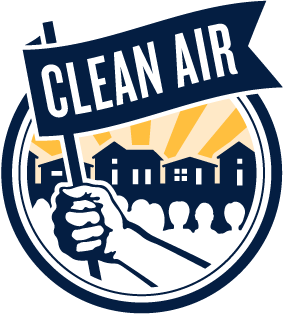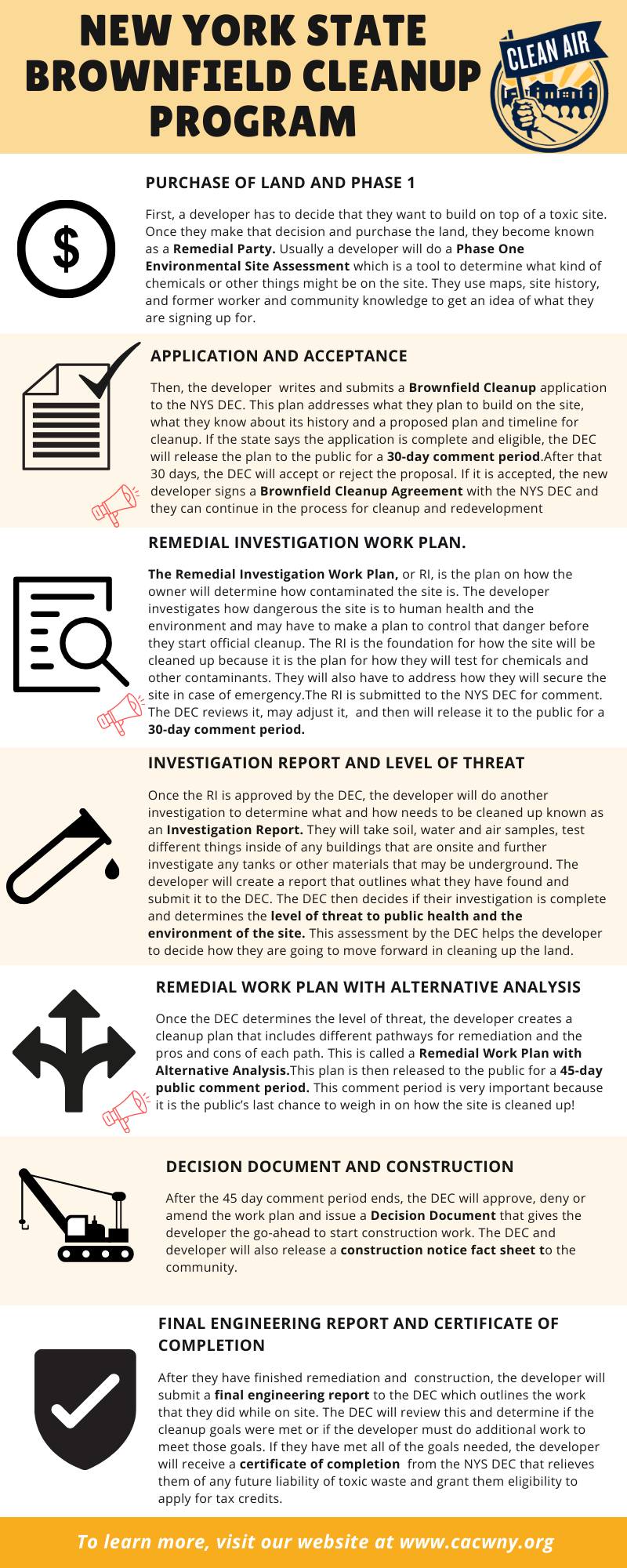Will Toxic Sampling Plan Be Enough to Address the Legacy Of Hazardous Waste at Tonawanda Coke?
Community organization calls to ensure that Honeywell International performs comprehensive evaluation of hazardous contamination
The New York State Department of Environmental Conservation (NYSDEC) has released the Riverview Innovation and Technology Campus Plan for sampling toxics at the former Tonawanda Coke site. The sampling plan, known as a Remedial Investigation Work Plan, is the foundational document inside of the Brownfield Cleanup Program that will set the course for future soil, water, air and vegetation sampling, and ultimately the quality of cleanup, on the site. The plan can be found on the DEC’s website and is now available for a 30-day public comment period.
The Clean Air Coalition is calling to ensure that Honeywell International performs comprehensive evaluation of hazardous contamination. Tonawanda Coke has a nearly 100-year history of toxic contamination, and large portions of the site and its infrastructure remain uncharacterized and unaddressed in this workplan.
Clean Air Coalition members are encouraging residents to submit comments to the DEC to share their thoughts and concerns regarding the proposed testing plan. Clean Air has been working with community members, environmental scientists, certified hydrologists, civil engineers, and former workers to deeply review over 100 years of site history and contamination. Clean Air members are also calling for the DEC to establish a Community Advisory Board in line with Federal Superfund Standards that would give community members and other stakeholders review, comment and decision making powers over the testing and remediation work done on the Superfund and Brownfield sites.
“The NYSDEC is required to keep residents safe and secure. Now is the time for the community to weigh in. Our community has institutional knowledge on the extensive history of contamination on this site and the NYSDEC needs to incorporate what we know in the sampling plan moving forward. We need a robust sampling plan that addresses all areas of concern, or else we won’t except the remediation remedy” – Emily Terrana, Clean Air Organizer
Tonawanda Coke is one of the most well known hazardous waste sites in the country. In 2014 the site was recognized as the only company in the history of the United States that was found guilty of 14 criminal accounts of violations of the Clean Air Act and Resource Conservation and Recovery Act, the federal law that governs ground contamination of hazardous waste.
Tonawanda Coke has caused tremendous quality of life issues in our community, including decades of land, air and water pollution, worker’s harm and fatalities, and now leaves us with a legacy of contamination. The current proposals for cleanup and restoration of the site must center community input and a rigorous and thorough testing protocol that guarantees a higher and better use of the site for generations to come.
“In environmental restoration, we really only get one chance in our lifetime to get it right. Doing it the cheapest and fastest way is not only disrespectful but unjust to ourselves and our future. It cripples any higher and better future use and costs good jobs and vibrant economy. The Tonawanda Coke site along the Niagara River deserves better than that. Abandoned properties significantly impact our neighborhoods and communities and we should be able to have a say about the future when our tax money is being used. What is in the public’s best interest?” -James Jones, Clean Air member and Tonawanda resident.
In 2020, the Tonawanda Coke site was split into four distinct parcels for remediation: three are now part of the State Superfund Program, and the remaining parcel has been accepted into the State’s Brownfield Cleanup Program. Notably, the Superfund sites’ (sites 108, 109 and 110) remediation costs are being paid for by the primary polluter, Honeywell International Inc. The 86 acre Brownfield portion is being remediated by Riverview Innovation & Technology Campus and OSC, who’s costs will be cushioned by New York State taxpayers. For more information on the NYS Brownfield and Superfund Programs see this video.
The Clean Air Coalition will be holding an informational meeting with the community to share their areas of concerns for cleanup and how to submit a comment to the DEC.
The online meeting will be held Thursday, July 9th at 6pm. Register at bit.ly/tccpublicmeeting

